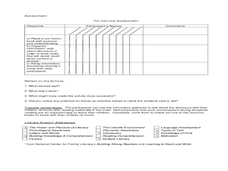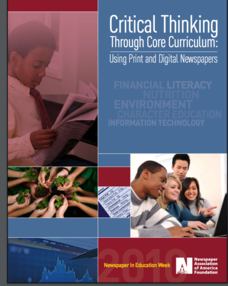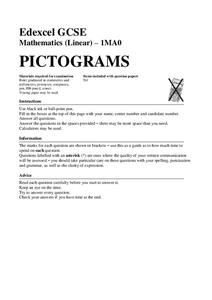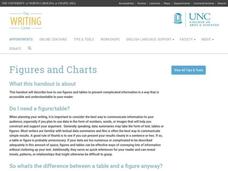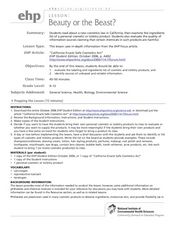Curated OER
GIS and Agriculture
Students are introduced GIS systems and how they operate. Using a GIS system, they locate and map the various types of agricultural products grown in Oregon. They rank each county based on the amount of agricultural products produced and...
Curated OER
Digging for Dinosaur Information
Students explore how to locate dinosaur information. They read the book, Catch Me If You Can! and discuss the popularity of dinosaurs among children, identify various kinds of dinosaurs and select a dinosaur to research. TAs they...
Curated OER
GIS: Mapping Watersheds of the Edwards Aquifer in Travis County
Students manipulate existing GIS data to create and map a new layer of information that shows that watersheds in Travis County that are on top of Edwards Aquifer. They create and map that shows the watersheds in Travis County that are on...
Curated OER
GIS Mapping: Special Instructions for Using Digital Orthophotos
Students practice cartography using GIS technology. They create a map of Austin using GIS and aerial photos.
Curated OER
Informational Writing
Fifth graders study Paul Revere. In this writing lesson, 5th graders discuss the elements of writing that help a reader be engage. They read about Paul Revere's life, taking notes about what made his life seem heroic, and write about...
Curated OER
Identifying Extra Information in Word Problems
In this math worksheet, students discover that some word problems have extra information which can be disregarded. Students solve 20 problems which have unneeded information. There are good directions and hints.
American Press Institute
Media Literacy: Where News Comes From
What actually happens at a press conference? Make sense of the mayhem with a mock press conference activity designed to promote media literacy. Individuals participate as either members of the press or the governor's office to examine...
University of North Carolina
Annotated Bibliographies
When researchers write a paper, they become curators of information. It's their job to determine the best sources of information on a topic and use those sources to inform their writing. As part of a larger series, a handout on annotated...
Rice University
Principles of Microeconomics for AP® Courses 2e
An informational textbook covers key principles related to microeconomics, such as consumer behavior and using models to understand economic issues. Young scholars also complete self-check questions at the end of each section to check...
British Council
Unit 4: Starting and Finishing Emails
Time to get started, and finish up! Budding business scholars get wise to the ways of beginning and ending e-mails. The fourth lesson in a series of nine career education and skills activities examines formal versus informal ways of...
Newspaper Association of America
Critical Thinking through Core Curriculum: Using Print and Digital Newspapers
What is and what will be the role of newspapers in the future? Keeping this essential question in mind, class members use print, electronic, and/or web editions of newspapers, to investigate topics that include financial literary,...
Teach Engineering
Projections and Coordinates: Turning a 3D Earth into Flatlands
Introduce your class to map projections and coordinates, the basics for the work done in a GIS, with an activity that uses Google Earth to challenge learners to think about the earth's shape.
US National Library of Medicine
Drug Use and Abuse: Past and Present
Pick your poison: tobacco, alcohol, opiates, cocaine, or marijuana. An online exhibition launches a research project that asks groups to select one of the five drugs and gather information on how the use of the drug and the regulations...
Everything Homeschooling
Biography Worksheet
Gathering information about a person is the easy part. Crafting an interesting biography is another thing altogether. The value in this information-collecting worksheet is that writers are asked to move beyond the usual basic questions.
Mathed Up!
Pictograms
Young mathematicians read, interpret, and complete a variety of real-world pictograms. Each question includes a key and information to complete the graphs.
Do2Learn
Responding to Questions
Why is it important to answer a question? Assist learners with their growing communication skills with an information sheet that explains how questions are meant to gather information.
University of North Carolina
Figures and Charts
Sometimes words aren't the best way to get information across to the reader. The eighth handout in the 24-part Writing the Paper series describes different type of figures and charts to display complex information in a paper....
EngageNY
Conducting Research: Asking and Answering our Questions about Rainforest Arthropods
Let's ask an expert. Scholars divide into groups to research and become experts on either ants or butterflies. Learners use task cards and text on their topic to complete a note catcher. At the end, they share their information with a...
Curated OER
Beauty or the Beast
Does the FDA really intend to protect public health? Spark a debate in your chemistry or health class by using this article, titled "Beauty or the Beast." It questions the safety of cosmetics and toiletry products, govenment regulations,...
Curated OER
Water Cycle Reading and Writing
Here is a great way to get pupils to express a scientific concept in a fun way. After hearing the story of Walter the Water drop and learning facts about the water cycle, the class will write a creative expository piece describing what...
Curated OER
Is It Fact or Opinion?
Distinguish between fact and opinions in this nonfiction reading lesson. Middle schoolers read 'The Diary of an Early American Boy' and work in groups to analyze the text. They record the facts and opinions for the text.
9/11 Memorial & Museum
The Destruction and Rebuilding of the World Trade Center
How did an investigation into the causes of the collapse of the Twin Towers, as a result of the 9/11 attacks, inform the construction of the new 1 World Trade Center? That is the central question of a resource that asks class members...
Texas State Energy Conservation Office
Creating an Advertisement
Advertising for the purpose of influencing public policy regarding the use of alternative fuels is the focus of an innovative and engaging lesson. Learners are split up into six team in order to create an advertising campaign that...
Baylor College
Body Mass Index (BMI)
How do you calculate your Body Mass Index, and why is this information a valuable indicator of health? Class members discover not only what BMI is and practice calculating it using the height and weight of six fictitious individuals, but...
Other popular searches
- Informational Text
- Informational Writing
- Geographic Information Systems
- Informal Letter
- Student Information Systems
- Informal Letter Writing
- Informational Text Features
- Informative Writing
- Information Media & Technology
- Informational Text Passages
- Locating Information
- +Student Information Systems



